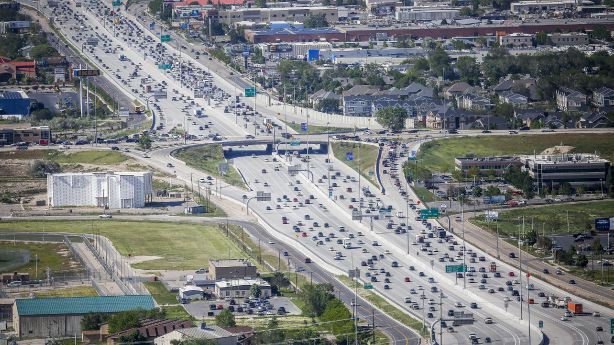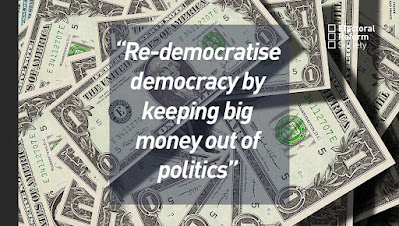From the Insanity File
A double-decker I-15 could be in Salt Lake City's commuting future
Cities have become nearly unliveable. Correction: are unliveable. If you live in, or near one, traffic is the monster you have to white-knuckle through on a daily basis. The typical American family has more vehicles than licensed drivers and in our "drive everywhere culture" it's getting worse every year.
Salt Lake City, UT is a great example. It's one of the fastest growing cities in the country and it's having a hard time keeping up with the rapid growth. However, building more infrastructure to accommodate vehicles is pure lunacy. Not too mention the unbelievable cost. But that's what they are considering for the I-15 interstate through Salt Lake City. And the plan they are considering is to double-deck the highway.
The political masses very rarely, if ever, entertain the thought of alternative forms of transportation. I mean REAL SERIOUS forms of alternative transportation. Like bicycling. But, they, along with every other level of government gets their marching orders from the fossil fuel industry, and because they do, it will be a long time before common sense and logic unseats the greed mentality.
We have become the new third world country model. Many progressive countries like Sweden, Denmark, Germany and Italy are way ahead of us in terms of innovation and embracing clean energy sources and alternative transportation concepts. Some have already divested from fossil fuel and others have set deadlines in the not too distant future. But not in this country. Our leadership has no interest in moving forward to a clean economy, at least until the last barrel of oil is sucked up, burned and put in the atmosphere -- where it belongs!
OK, No Whining Without Solutions
Very few of us would consider giving up our car and replacing it with the lowly bicycle as our primary source of transportation. But think about this. Take the proposal of double-decking I-15. The cost would be prohibitive, and by the time it was completed it would be antiquated, and the population may be doubled again by the time it opened and discussions to add a third and fourth deck would be headline news -- again.
Here's my idea (and it's not really a new one):
Instead of building a double-deck highway for cars why not build it for bicycles? A state-of-the-art, elevated bicycle freeway. It would follow the same traffic patterns, same off-ramps as cars and at a fraction of the cost. Cyclists would be above and away from traffic.
If you think this is idea is ridiculous, it was actually proposed in Los Angeles (the car insanity capital of the world) in 1899. An elevated dedicated wooden bike path from Los Angeles to Pasadena. It's an interesting read. An 1899 Plan to Build a Bike Highway in Los Angeles (And Why it Failed).
Cycle superhighway
I mentioned how other "progressive" cities around the world are advancing in the 21st century and dealing with traffic. London is currently poised to spend £900 million ($1.4 billion) on one of
Europe's most ambitious bicycle path infrastructure projects. Called
the East-West Cycle Superhighway, the separated bicycle path would
connect Acton in West London with Barking in the east -- a journey of
more than 18 miles.
"Bikes already make up 24 per cent of all rush-hour traffic in central London - hundreds of thousands of trips every day that would otherwise be made by car or public transport," said London mayor Boris Johnson.
"Because
this isn't just about cyclists. Getting more people on to their bikes
will reduce pressure on the road, bus and rail networks, cut pollution,
and improve life for everyone, whether or not they cycle themselves."
Incentives to Use the Highway
This would be the obvious question when considering such a project. "Would they use it?" There are plenty of built in incentives, such as health, pollution, parking, stress, grid lock etc. But would that be enough?
We offer tax breaks to big corporations to help their bottom line, why not offer tax breaks for real people to defer using their car and riding their bike to work, school, errands and recreation? Or merchants offering discounts when arriving by bike, health insurance companies could offer discounts for commuting cyclists.
The biking industry could also get involved by manufacturing bikes with weather components, such as hoods, umbrellas, windshields, battery powered heaters etc.
Some of these ideas and products already exist, and with just a little imagination and ingenuity a complete weather proof, commuter bike could easily be manufactured, or better yet tinkered with in your garage.
A closing Note: The reason the wooden bike highway failed in Los Angeles? You guessed it -- the internal combustion engine was introduced and fossil fuel was cheap. And if the fossil fuel industry has it's way a double-decker highway on I-15 is in your future -- at your expense, for their benefit.





Comments
Post a Comment